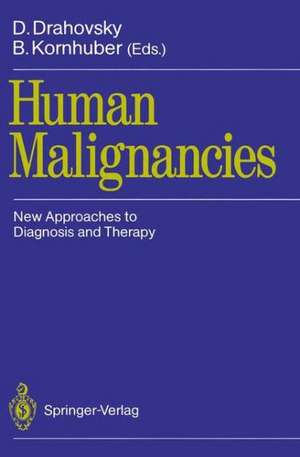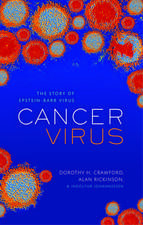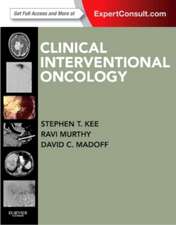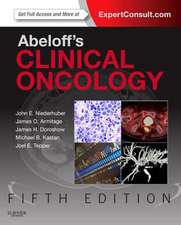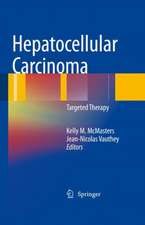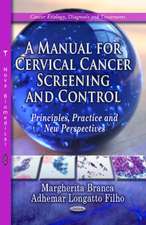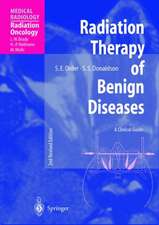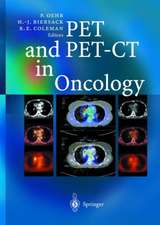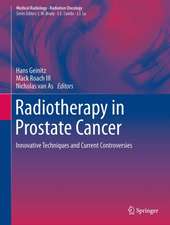Human Malignancies: New Approaches to Diagnosis and Therapy
Editat de D. Drahovsky, B. Kornhuberen Limba Engleză Paperback – 19 apr 1989
Preț: 706.04 lei
Preț vechi: 743.20 lei
-5% Nou
Puncte Express: 1059
Preț estimativ în valută:
135.12€ • 146.72$ • 113.50£
135.12€ • 146.72$ • 113.50£
Carte tipărită la comandă
Livrare economică 22 aprilie-06 mai
Preluare comenzi: 021 569.72.76
Specificații
ISBN-13: 9783540192190
ISBN-10: 3540192190
Pagini: 164
Ilustrații: XI, 149 p. 11 illus.
Dimensiuni: 133 x 203 x 9 mm
Greutate: 0.18 kg
Editura: Springer Berlin, Heidelberg
Colecția Springer
Locul publicării:Berlin, Heidelberg, Germany
ISBN-10: 3540192190
Pagini: 164
Ilustrații: XI, 149 p. 11 illus.
Dimensiuni: 133 x 203 x 9 mm
Greutate: 0.18 kg
Editura: Springer Berlin, Heidelberg
Colecția Springer
Locul publicării:Berlin, Heidelberg, Germany
Public țintă
ResearchDescriere
To scientists, oncology means research on the disease of cancer. The connection between basic research and clinical oncology, however, is not always very clear. Basic research sometimes appears to be an art that is practiced for its own sake and admired for its perfection. The clinician wishes to interpret the issues addressed by basic research, as he is eager to obtain answers to the questions that clinical oncology leaves open. These are, among others, questions as to the etiology and pathogenesis of neoplasma in human beings. In spite of all the technological advances during the past 10 years, the guidelines for new treatments of human leukemias and tumors are still unsatisfactory. The dialogue between researchers and clinicians must never cease, so that these questions can be formulated in such a way that science may be able to answer them. Both parties should cooperate whenever this is useful and possible. Prospectively planned clinical trials on the diagnosis and therapy of neoplasias offer a good opportunity for research involving patients. Tumor and/or blood tests run by reference laboratories on a great number of patients with the same diagnosis can lead to clinically relevant basic research. Using clinical studies in basic research programs permits us to trace missing pieces in the puzzle of cancer and put them into place.
Cuprins
Diagnosis.- DNA Analysis as a Tool for Determination of Clonality and Lineage in Acute Leukaemias.- Differentiation of the Major Human Tumor Groups Using Monoclonal Antibodies Specific for Individual Intermediate Filament Proteins.- Serological Diagnosis of Neoplastic Diseases.- Macrophages in the Stroma of Malignant Tumors.- Biological Markers in the Classification and Diagnosis of Disorders of the Human Breast.- Therapy.- Advances in the Chemotherapeutic Treatment of Childhood Leukemia.- Coexpression of Interleukin 2 and HTLV III Messenger RNA in Patients with Acquired Immune Deficiency Syndrome.- New Approaches to Cancer Immunotherapy.- Functional Properties and Application of Ganglioside Antibodies to Patients with Malignant Melanoma.- Therapeutic Application of Iodine-131 Labelled Monoclonal Anti-CEA/CA 19-9, and OC 125 Antibodies.- Metaiodobenzylguanidine in Diagnosis and Treatment of Childhood Neuroblastoma.- Successful Application of a Virus-Modified Tumor Vaccine for Anti-Metastatic Cancer Immunotherapy.- Closing Remarks.
